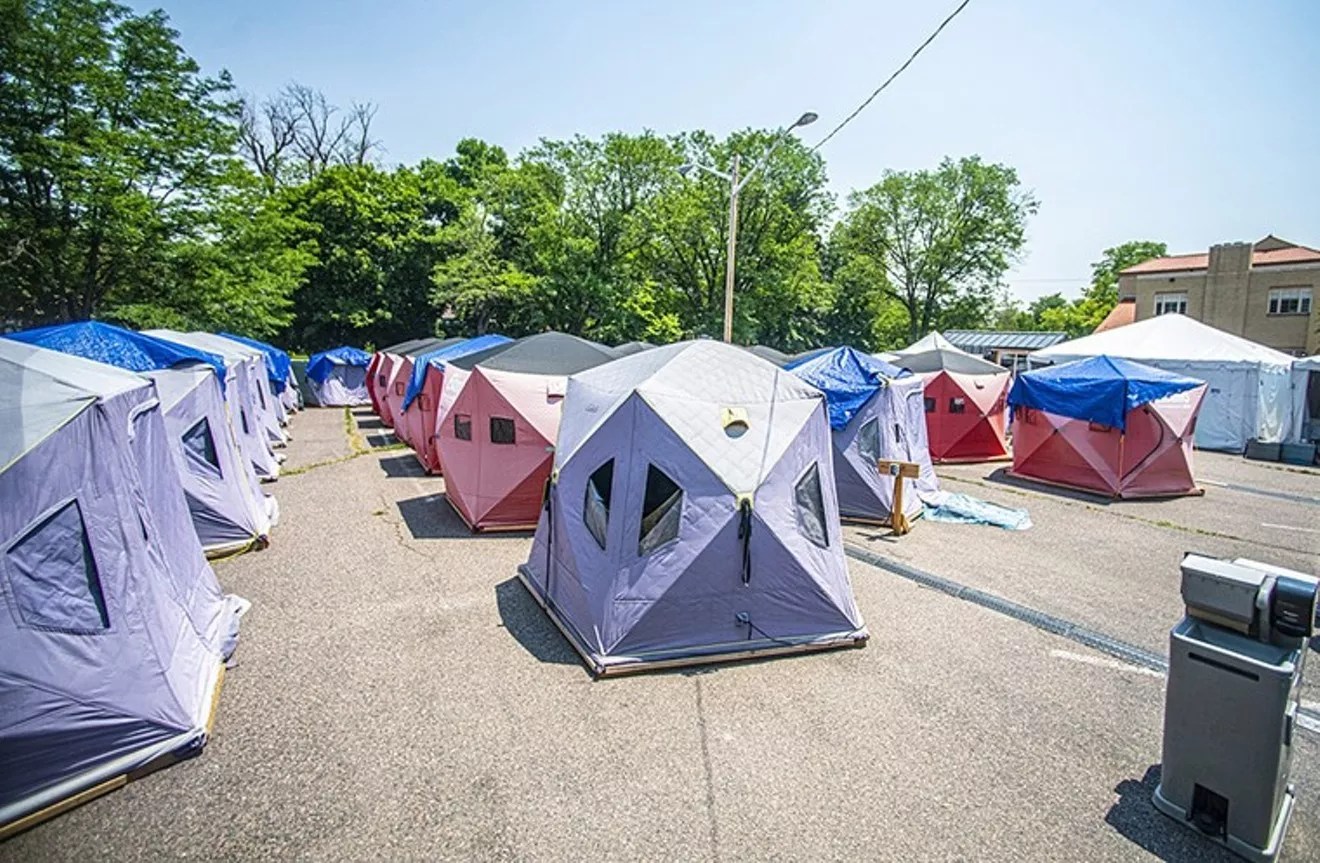
Evan Semón

Audio By Carbonatix
On February 22, Denver City Council voted unanimously in favor of overhauling the Denver Board of Adjustment for Zoning, which handles all zoning appeals and variance requests.
“To not have updated a board since 1956 is a failure of our system,” said Councilmember Amanda Sandoval, who worked with at-large member Robin Kniech on the proposal designed “to modernize this board and bring it up to a new type of criteria.”
The Board of Adjustment for Zoning has significant sway on certain zoning matters, even if its work often flies under the radar. For example, the board can grant variances for extra-high fences, smaller setbacks and other requests, challenge decisions made by the zoning administrator, and block or delay a zoning-code enforcement action.
The five-person board, which has two alternate members and meets weekly, has been involved in high-profile cases over the past year in relation to safe-camping sites. Attempting to block a safe-camping site at the Park Hill United Methodist Church parking lot, a group of Park Hill residents filed administrative appeals, one of which sought to block zoning administrator Tina Axelrad’s decision to allow safe-camping sites across the city; a second was a site-specific challenge to the Park Hill location. The zoning board held hearings for both challenges and rejected both. Although the vote on the site-specific challenge was 3-2 in favor of approving the appeal, under current rules, a supermajority of four votes was required to reverse the permit for that site.
The Board of Adjustment for Zoning will soon consider challenges regarding a safe-camping site on a Denver Human Services parking lot at 3815 Steele Street and a site on a Denver Health-owned lot at 780 Elati Street.
Members of the board have been appointed by the mayor; under the new ordinance, they will be appointed in part by the mayor and in part by Denver City Council. The current members will be able to reapply for their positions as long as they’re not prevented from doing so by term limits.
There are currently no expertise or training requirements for boardmembers. Under the new ordinance, the board must have at least one architect and one attorney, as well as an expert in urban planning, construction, engineering or development. The remaining members must have a demonstrated interest in land use and zoning. Members will also receive training in the zoning code, legal procedures, adopted plans, diversity, equity and inclusion, along with the Americans With Disabilities Act, the Civil Rights Act and the Fair Housing Act.
“Land-use decisions have arguably had the single-greatest impact on the history of how our country and this city have become less of a melting pot and more of a sort of cafeteria tray, all divided up when it comes to people of different races and ethnicities and incomes and how they’re distributed across the city,” said Jonathan Cappelli, executive director of the Neighborhood Development Collaborative, a nonprofit composed of nineteen Front Range affordable-housing and community-development organizations, during the public hearing on February 22.
The Board of Adjustment for Zoning was created in the 1920s, when Denver adopted its first zoning code. For the next thirty years, the board approved all zoning permits. In 1956, the City of Denver adopted a new zoning code and the board became focused on zoning appeals rather than rezoning requests, which became the purview of Denver City Council. In the 1980s, board-appointment authority shifted from the council to the mayor. But aside from that, the board’s responsibilities and operations have remained largely unchanged since 1956, even though Denver adopted a new zoning code in 2010.
“We, as a city, haven’t done well by this board. They are using the same criteria from 1924 to determine whether a property or a project needs a variance. That’s not okay. And it’s not okay because our values as a city aren’t always served,” said Kniech before the vote.
With the ordinance now passed, a new board is likely to be seated in June. And in April 2023, Denver voters will weigh in on a city council-referred charter change proposal that would remove the Board of Adjustment for Zoning from the city charter, so that council can move the board’s regulations into municipal code, where it would have the flexibility to make updates.
During the public hearing on the ordinance, Joel Noble, chair of the Denver Planning Board, concluded: “I’d like to see this next phase…result in a clearer process that everyone understands better, including the public, that the same facts will reach the same decision reliably because it has transparency and clarity.”